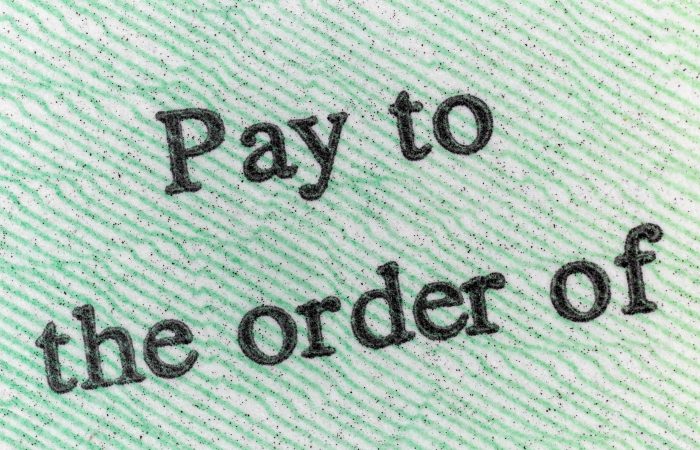A lot of people know what it’s like to deal with debt in some way shape or form. However, there are people that deal with such crushing levels of debt, it can feel like they will never get out! Thankfully, that isn’t necessarily the case. There are debt relief options out there that may be able to help. Debt relief options can be a lifesaver for those struggling with overwhelming financial burdens. However, not everyone knows about these options or how they can actually make a difference. Hopefully, this article can change that!
Different Debt Relief Options
Not all debt relief options were created equal. That means that understanding different options that are out there is key. Some popular debt relief options that people choose are:
- Bankruptcy
- Debt Management Plans (DMPs)
- DIY Debt Relief Options
- Secured Debt Relief Solutions
Bankruptcy
When you’re drowning in debt and can’t seem to catch a break, bankruptcy might be the answer to your prayers. Bankruptcy could be the solution for those who are struggling with debt, erasing most of their credit card debt, unsecured personal loans and medical bills – giving them a new beginning.
Chapter 7 Bankruptcy: The Easy Way Out
If you have little or no disposable income, Chapter 7 bankruptcy is likely your best bet. You’ll need to pass a means test to qualify (amongst other eligibility criteria). However, if you do, you can kiss most of your unsecured debts goodbye while keeping some of your property.
Chapter 13 Bankruptcy: The Repayment Plan
For those with a regular income who want to keep their assets, Chapter 13 bankruptcy is the way to go. You’ll work out a repayment plan lasting three to five years based on your financial situation, and once you complete it successfully, any remaining qualifying debts may be discharged.
Debt Management Plans (DMPs)
Got debt? A DMP might be your saving grace, allowing you to pay off your debts over time through lower monthly payments negotiated with creditors by a credit counseling agency.
How to Find a Legit Credit Counseling Agency?
- Look for agencies accredited by the National Foundation for Credit Counseling (NFCC).
- Avoid agencies that charge high upfront fees or pressure you into signing up immediately.
- Research multiple options and read reviews from other clients before making your decision.
Advantages and Disadvantages of Using DMPs
- Lower monthly payments can make it easier to manage debt overall.
- However, longer repayment periods can lead to higher total costs incurred throughout this time frame.
- Additionally, access to new credit lines could potentially be limited while enrolled in the plan.
DIY Debt Relief Options
Sometimes you have to take matters into your own hands. You can try to take control of your finances by consolidating high-interest debts into one payment with better terms or interest rates. For example, if you have 4 different personal loans that all require a monthly payment, and have high interest rates, you may want to consolidate them. This can bring the payments from 4 per month to 1 per month. Besides that, you may be able to snag better interest terms and pay less in the end!
Besides consolidation, you may be able to negotiate better terms. Reach out to your creditors and politely explain your financial hardship to negotiate lower interest rates. Another option would be to move high-interest credit card balances onto a new card with a lower introductory rate to save money on interest payments.
Secured Debt Relief Solutions
Don’t let secured debt like mortgages or car loans stress you out – there are options available to help you get back on track.
Refinancing: Lower Interest Rates and Extended Repayment Terms
Struggling with high-interest rates? Refinancing can help you secure a lower interest rate and/or extend the repayment term to make monthly payments more manageable.
Short Sales and Foreclosure Alternatives
If you owe more on your mortgage than your home is worth, a short sale can help you avoid foreclosure proceedings and protect your credit score.
- Mortgage Modification: Change the terms of your existing mortgage agreement to make monthly payments more affordable.
- Mortgage Forbearance: If you’re experiencing temporary financial hardship, mortgage forbearance may provide temporary relief by allowing you to pause or reduce your monthly payments for a specific period.
It’s essential to thoroughly evaluate your options and determine the best course of action for you. Don’t let secured debt hold you back.
Understanding the Consequences of Debt Relief Options
Debt relief options have pros and cons, so choose wisely to avoid long-term damage to your credit score, financial stability, and future borrowing opportunities.
While there are benefits to bankruptcy like regaining control of your debt, there are some pretty hefty drawbacks. One of the biggest is that filing for bankruptcy can hurt your credit score for up to 10 years, making it tough to get new loans or credit.
Debt Management Plans (DMPs) can lower your credit score if you close accounts, leading to higher utilization ratios. You may also find yourself with a lot of fraudulent businesses, which means you have to be very careful!
When it comes to DIY debt relief options, you just want to make sure you’re aware of what it means to get a new loan. For example, if you get a new loan and consolidate your other loans, you can see a credit score decrease. That’s because you reduce the number of accounts you have and impact the age of your credit.
Conclusion
Don’t let debt drag you down – there are plenty of options available to help you get back on track.
- Bankruptcy: While it’s not for everyone, bankruptcy can be a lifesaver for those drowning in debt.
- Debt Management Plans: Credit counseling agencies can help you create a plan to pay off your debts, but be aware of the potential impact on your credit score.
- DIY Debt Consolidation: Negotiating lower interest rates or transferring balances can be effective if you know what you’re doing.
- Refinancing: If you have assets to secure a loan, refinancing can be a smart move.
- Short Sales: Selling your property for less than what you owe can be a tough decision, but it may be the best option for some.
Remember, each option has its pros and cons – do your research and choose the one that works best for you. It’s always recommended to consult with a professional before making any decisions!



